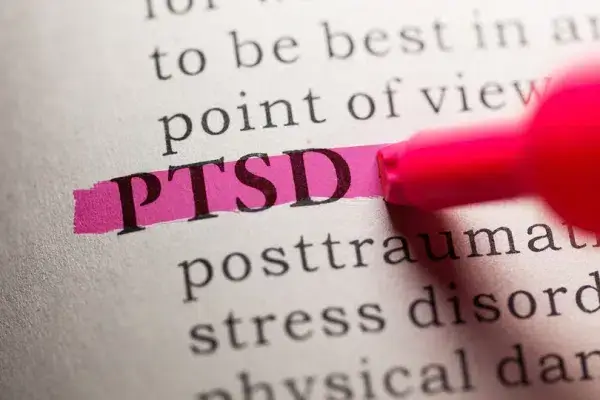
You may be hearing more and more about post-traumatic stress disorder (PTSD) these days as mental health issues are becoming increasingly discussed in mainstream America. While the stigma surrounding mental health issues like PTSD still exists, it is breaking down, making more and more people feel more comfortable admitting that they suffer from mental health issues and that they are increasingly seeking help for them.
It is estimated that about 7.8 percent of Americans will experience PTSD at some point throughout their lives as a result of a traumatic event experienced. Women are twice as likely as men to develop PTSD.
PTSD is a psychiatric disorder that can happen after a very negative experience or after witnessing life-threatening and traumatic events, such as abuse in childhood, assault from a spouse, natural disasters, terrorist events, major accidents, or military experiences.
At the same time, more than 20 million American adults suffer from addiction to drugs or alcohol. Many people suffering from PTSD end up self-medicating with drugs or alcohol, inevitably leaving them with both a mental health and addiction issue.
This Season, Give Yourself the Gift of a Fresh Start.
Whether you are struggling with addiction, mental health or both, our expert team is here to guide you every step of the way. Don’t wait— reach out today to take the first step toward taking control of your life.
In fact, mental health issues and addiction are often intertwined with each other. The good news is that those suffering from PTSD and/or addiction have many options to help overcome their issues. While traditional therapy and medication management are often prescribed and have proven to be effective, a newer form of treatment is emerging, known as Eye Movement Desensitization and Reprocessing (EMDR).

What is EMDR?
EMDR is a rather new, unconventional form of psychotherapy that is gaining in popularity, especially for those who suffer from addiction or mental health disorders like PTSD, which are often connected with one another.
Research continues on the effectiveness of EMDR. This type of treatment involves a therapist moving his or her fingers back and forth in front of a patient’s face, while the patient follows the fingers with his or her eyes. While the patient is following the therapist’s fingers, the patient will be asked to think back to an event in the past, which is usually what may have sparked PTSD, addiction, or any other mental health or substance use disorder.
Rather than relying on traditional talk therapy or pharmaceutical medications to deal with addiction and mental health issues, EMDR is based on a patient’s rapid eye movements which are said to lessen the effect of bad memories of past events that may be linked to substance abuse or mental health issues.
How Does EMDR Work in Drug Rehab?
Many clients who suffer from addiction and seek treatment often go into drug rehab with a history of trauma. Essentially, EMDR for addiction is designed to help painful memories eventually go away, which will inevitably help clients beat their dependence on drugs or alcohol.
Since many people in drug rehab struggle with a traumatic history in addition to addiction, having access to EMDR can help tremendously. EMDR has the potential to relieve clients of their awful memories and reduce the incidence and severity of negative emotions associated with their trauma. As this takes place, overcoming addiction can be easier.








